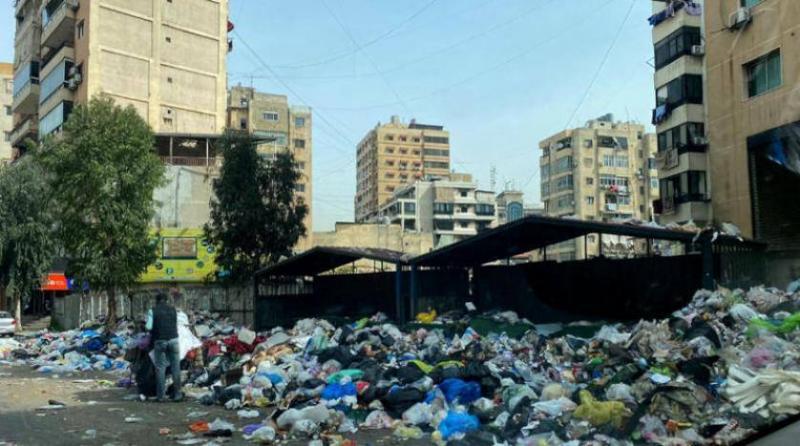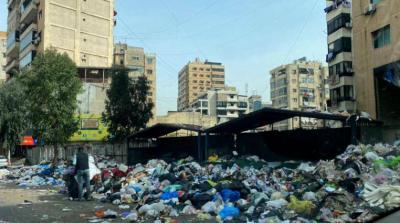Residents in the suburbs of Beirut doubt that the announced solution for removing waste from the streets is sustainable, considering that "whenever you solve one problem, another will arise," as stated by one resident passing by a waste pile in a street of the southern suburbs of Beirut. The fears of the residents are growing regarding the resurgence of the waste accumulation crisis amid the financial difficulties discussed by the Lebanese government and the companies assigned to collect, sweep, sort, and bury the waste.
For four consecutive days, waste overflowed in the streets of the southern suburbs of Beirut after workers from "City Blue" Company went on strike. Garbage spread along the main road in the suburb and in side streets. The main roads became so congested that they could only accommodate the passage of one vehicle due to the waste spilling alongside the streets and extending into the middle of the road. In the side streets where garbage was piled up, the streets were completely closed, prompting municipalities to decide to alleviate the heaps by removing parts of it until the crisis with the workers is resolved.
"City Blue" Company is responsible for collecting, sorting waste, and sweeping the streets in the southern Metn area and the districts of Baabda, Chouf, and Aley in Mount Lebanon. The workers of "City Blue" went on strike for four consecutive days due to not receiving their salaries at the end of last month. This was due to banking procedures that imposed new restrictions on withdrawals in Lebanese currency, as part of measures taken by the Central Bank of Lebanon to decrease the monetary supply in Lebanese lira from the markets.
However, political interventions led to a resolution regarding the salary crisis. Parliamentary sources following the crisis stated that communications with the Governor of the Central Bank of Lebanon, Riad Salameh, led to a solution to the issue, as necessary liquidity in Lebanese lira was injected, sufficient for employees to withdraw their salaries from ATMs. Consequently, the company’s trucks returned to the streets and began collecting the accumulated waste.
On another note, workers from "Ramco," which collects waste in Beirut and Metn, also went on strike at the company's headquarters in protest against the lack of liquidity needed to pay their salaries, stating that the bank delays their salary disbursement every month due to a lack of liquidity. This crisis was supposed to be resolved yesterday, as the company informed them after communicating with governmental authorities to avoid the accumulation of waste in the streets of Beirut and Metn.
Despite the companies assuring that the solution would be sustainable based on commitments they received from Lebanese officials, the ongoing economic and financial crisis in Lebanon leaves the residents worried about the return of the waste crisis that erupted in 2015 and sparked protests calling for the downfall of the regime.
Over the past two years, many issues related to the waste crisis have come to light, starting from warnings that landfills would reach their capacity, to the crisis of lifting fuel subsidies and the rise in the dollar's value against the Lebanese lira, forcing companies to incur additional losses due to maintenance and transportation costs, culminating in adjustments to salary values after losing a large portion of their worth.




